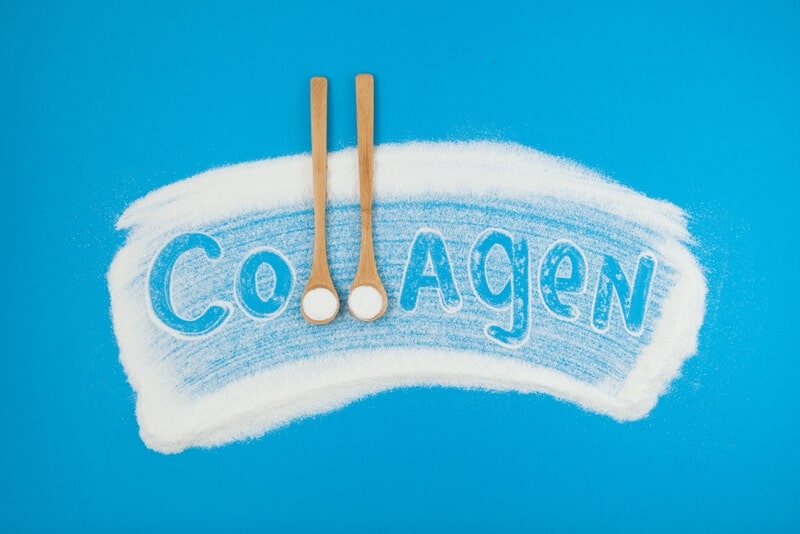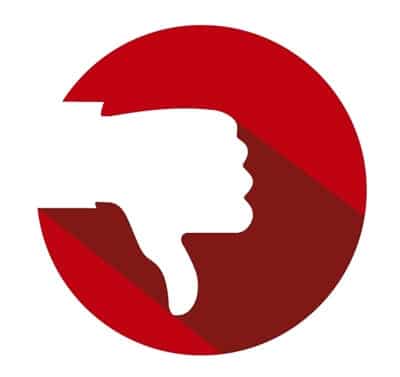Collagens are found in skin, tendons and ligaments. It is one of the most abundant proteins in human body and is produced by body. On the other hand, it is possible to get this special protein through supplements and food. Contrary to popular opinion, this protein not only affects skin, but also positively affects different body parts. Hair is one of these parts. Well, what does collagen do for hair? What are the effects of collagen for hair growth? How is its deficiency detected? Do supplements really work? All the details are in our article.
Table of Contents
What are Collagen Types?
This substance, of which main task is to regulate connective tissue, has different types. Each of these types have also different tasks. There are totally 16 different types of collagen in an adult human body. However, three of them are much more concentrated. The details of these types, which are also considered as basic collagen types, are as follows:

-
Type 1
Type 1 generates up about 90% of the total collagen in a human body. It has a tightly bunched filamentous structure. It is involved in nail, bone, tooth, fibrous cartilage, tendon and hair formations.
-
Type 2
These are more flabby packed proteins in contrast with type 1. By taking part in the production of cartilage and connective tissue, it contributes to healthy articular functioning.
-
Type 3
It is found in blood, heart, gastrointestinal tract and muscles. It has different tasks such as providing tightness and flexibility to skin.
What Type of Collagen Helps Hair Growth?
Approximately 70% of skin structure consists of type 1 and type 3. This point needs to be taken into account in order to make the right choice for hair. Types 1 and 3 should be preferred to support hair, skin and nails. When collagen for hair growth selection is done in this way, expectations will generally be met.
Read Also: What Are Parabens in Shampoo? | Why Are They Bad for Hair?
Benefits of Collagen for Hair
Collagen is known to have beneficial effects for hair. However, the answer to the question of what does collagen do for hair is not known exactly. The effects of this special protein on hair can be listed as follows.

-
It Supports Hair Formation
The basic constituent of hair is a protein called keratin. Human body uses amino acids to create keratin. Some of these amino acids used are found in collagen. Therefore, it would not be wrong to say that collagen has supportive effect on hair formation.
Proteins that humans consumed are first dissociate into constituents. Then, these can be used to form different components or proteins. Collagen contains amino acids called glycine, proline and hydroxyproline. The mentioned amino acid called proline is one of the basic components of keratin. Therefore, collagen is a protein that supports hair growth.
-
It Protects Hair
Collagen has an antioxidant effect and can fight free radicals that damage hair. Free radicals are compounds that enter human body due to malnutrition, stress, negative environmental effects and air pollution. These have negative effects such as damage to proteins.
Researches conducted show that free radicals also damage hair follicles. The defense system, which fights free radicals when young, weakens due to aging. As a result, hair follicles are damaged and shedding may occur. At this point, it is necessary to turn to antioxidants that are effective against free radicals.
Collagen is a substance, which has an antioxidant effect, according to conducted researches. Collagen for hair can fight free radicals and prevent hair follicle damage to a certain extent.
-
It Prevents Hair Thinning Due to Aging
More than 60% of dermis layer (middle layer of skin), where hair follicles are located, consists of collagen. It ensures that this part has an elastic and strong structure. Based on aging, body’s collagen production decreases and this can cause hair thinning over time. Therefore, collagen can prevent thinning at this point and contribute to hair development in a healthy structure.
Read Also: Can Depression Cause Hair Loss? | Advice That May Help!
-
Collagen for Hair Growth
The amount of collagen in a body decreases based on age and it is adversely affected by alcohol and malnutrition. In addition to this decrease, iron deficiency, low rate thyroid and hormone imbalances can also increase DHT level, which causes hair loss. Collagen-containing foods or supplements can give positive results in eliminating these negative effects. So, collagen for hair growth is a really effective type of protein.
-
It Moisturizes the Scalp
One of the positive effects provided by collagen for hair is that scalp is moisturized. While this special protein supports dermis structure of skin and surrounding of follicles, it also has a moisturizing effect. For this, it works in harmony with useful components such as hyaluronic acid.
With scalp being more humid or providing moisture balance here, nutrients affect hair follicles better. This ensures that hair health status is generally positive.
-
It May Decelerate Hair Graying
Hair graying is largely related to genetic factors. However, this problem can also be seen due to the damage by free radicals to the cells that provide hair color. Due to both aging and the effects of free radicals, the number of cells that produce melanin pigment may decrease. This situation results in hair graying.
Collagen fights free radicals with its antioxidant effect, thus protecting the cells that produce melanin pigment. Collagen for hair can decelerate graying with its effect here. However, it should not be forgotten that this situation is valid only for graying due to free radicals.
-
Easily Retrievable
Collagen, which has many positive effects on hair, can be taken with supplements and foods. It is found in meat, bones and skin of animals such as chicken, fish and cattle. In the rest of the article, we will share a comprehensive food list about it. By consuming such foods or taking supplements, you can provide the collagen that your body needs.
Read Also: Problem Solved: My Hair Feels Like Straw and Is Falling Out!
Factors Leading to Collagen Loss

Collagen found in human body is lost due to different reasons. Prominent ones among these reasons can be listed as follows:
- Malnutrition and poor nutrition (unhealthy diets)
- Exposure to sun directly for too long
- Menopause
- Treatments that make it difficult to absorb vitamins and minerals or such side effects of different treatments
- Alcohol and cigarette usage
- Too much use of refined carbohydrates and sugars (Glycation)
- Chronic inflammation due to the increase of free radicals in body
- Sleep irregularity and disorder
- Exposure to toxins
- Increase in cortisol level due to emotional and physical stress
How to Identify Collagen Deficiency in Hair?
We talked about how important collagen protein is for hair growth. Now let’s talk about the lack of it. Collagen deficiency shows itself in body in different ways. Problems in hair health can be expressed as one of them. Hair shedding, thinning and slowdown in hair growing time are some general problems. If such conditions exist, you may suspect collagen deficiency.
Read Also: Does Syphilis Cause Hair Loss? | Symptoms & Treatments
Collagen-Rich Foods
Collagen for hair has many positive effects. In order to see these effects, body needs to be supported in terms of this type of protein. What to do at this point is to consume foods that contain this protein. You can also meet your collagen needs for hair growth through the following natural nutrients:
| |
-
Egg White
Egg white is one of the best sources of collagen and contains proline and glycine that make up this protein. However, it is stated that consuming whole egg instead of consuming only the white part is important for obtaining high quality protein.
-
Bone Broth
Bone broth, which contains amino acids such as glycine, proline and arginine, is a nutrient that should be included in a diet according to experts. This nutrient, which is effective in increasing collagen level, can also increase cholesterol level in blood. Therefore, it is recommended not to consume it for those who have high cholesterol and cardiovascular disease.
-
Citrus Fruits
Citrus fruits are rich in vitamin C. Vitamin C is an auxiliary substance used during collagen synthesis and supports this process.
-
Dark Green Leafy Vegetables
Vegetables with dark green leaves such as parsley, cress, spinach and arugula support collagen production.
-
Gelatin
Gelatin is a type of protein produced from collagen. Therefore, its consumption is known to support collagen production. Gelatin, which can be used in many meals, significantly increases the nutritional value of meals.
-
Cod Fish
Cod, like many other white fish, is rich in proline and glycine. It also contains phosphorus, vitamin B6 and selenium.
-
Garlic
Apart from vitamin C, sulfur is another substance that supports collagen production. The presence of sulfur in garlic has made it one of the nutrients that support the production of this particular protein.
-
Purple and Red Fruits
Purple and red fruits such as black mulberry, blueberry, strawberry and raspberry are very rich in vitamin C. They support collagen production. In addition, ellagic acid, which is a type of antioxidant in strawberries, also provides protection against collagen destruction.
Can Collagen Supplements Help Your Hair Loss?

Collagen supplements have many benefits for body health. One of the areas that this special protein positively affects is hair. Collagen is very important for hair growth. This protein has amino acids that are included in hair structure. Therefore, supplements are important in terms of replacing collagen that is lost. It makes hair steady and strong and also supports hair follicles. Thus, it provides voluminous and thick hair.
Free radicals are a major threat to hair health. Collagen, which has an antioxidant effect, fights free radicals and eliminates their negative effects. These supplements can give positive results in eliminating problems such as graying, thinning and shedding. However, it is more important that you try to meet your collagen needs primarily from natural nutrition.
CONCLUSION
The answer to the question of what does collagen do for hair is generally as we described above. This type of protein has many positive effects on hair health. It contributes to the solution of problems such as shedding, thinning and graying. For this reason, it is used in some of today’s hair treatment methods.

Although collagen for hair has many positive effects, it does not have a feature that can create instant miraculous effects. There is no such thing as a definitive solution to every problem experienced. If problems in your hair continue although you get collagen, you can apply to our clinic and benefit from advanced treatment methods such as PRP and hair transplantation. You can contact us to get more detailed information from our doctors.
Fill In The Form Below To Get Answers To All Your Questions About Collagen for Hair Growth From Our Doctors Within Hours. (FREE)

